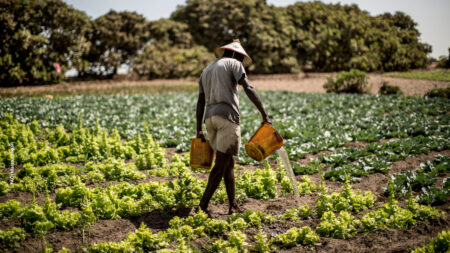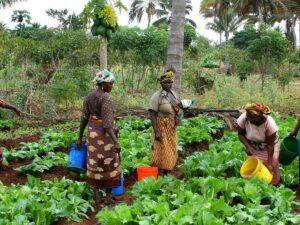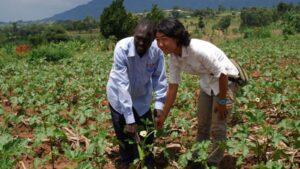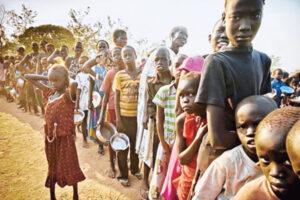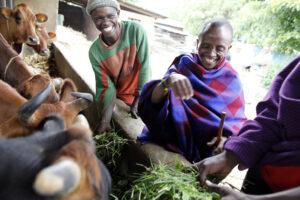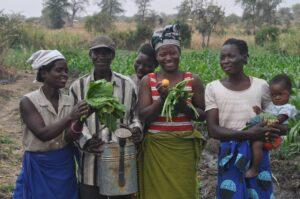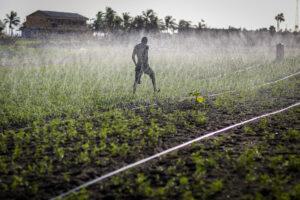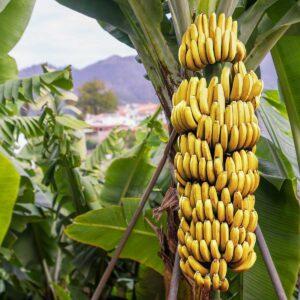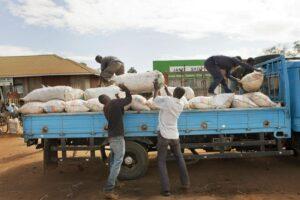- Africa’s new dawn: the rising role of digital and AI in agriculture
- Can Dangote Refinery Transform Africa Energy Ambition
- Gallup Survey: 80 per cent of Kenyan Workers Are Disengaged and Seek New Opportunities
- Madagascar Man Freed from 5KG Tumor After 15-Year Struggle
- How women in Africa are perceived and treated
- Sugar consumption in Kenya to Increase to 1.23 Million Tonnes
- Can Somalia and Turkey Oil deal Bring Change in Somaliland
- Remittances to Kenya dropped to $371.6 million in June, marking a six month low
Agribusiness
- Sustainable Agriculture Farming Practices have been identified as the only way to ensure food security in the future
- Crop Life International launched its flagship commitment, the Sustainable Pesticide Management Framework (SPMF) program in 2021
- Kenya has made significant strides in pesticide management by integrating global best practices into its new pesticide law.
Kenya is among the nine countries in the world undertaking a $13 million (Sh1.7 billion) agriculture funding program over the next five years. The funding is aimed at supporting sustainable agriculture farming practices in the selected member states mostly targeted towards reducing harm caused by pesticides.
According to Crop Life International, Kenya is among the countries that have done well in Integrating global best practices into the new pesticide law, enhancing the national poison control center, and establishing an industry-wide pesticide container management scheme with 310 collection sites.
In its latest Annual Report for its Sustainable Pesticide …
- Expensive loans remain a significant issue across populations engaged in agriculture in Nigeria, Tanzania and Zambia.
- A report by the Alliance for Green Revolution in Africa (AGRA) says capital injection is a significant strategy agribusinesses use to survive.
- Moreover, agribusinesses face high operational costs from fuel prices and low-profit margins driven by currency devaluations.
The lack of agriculture-friendly financial systems saw agribusinesses turn down expensive loan options in the market, with only 15 per cent taking on commercial capital in 2023 and the rest sourcing capital from friends, family and their business savings.
The incentives by the government channelled towards agriculture failed to adequately cushion Agribusinesses from economic shocks, a new report by Alliance for Green Revolution in Africa (AGRA) has revealed.
The African Agribusiness Outlook survey is conducted annually to gain insights into the sector’s top priorities, how they address challenges, and what SMEs see as opportunities.
A reflection …
- Sustainable agriculture employs 65-70 percent of Africa’s labour force.
- Only two to three percent of African renewable water resources are usable compared to the 5 percent worldwide.
- In 2019 a report revealed that Africa produced more than 50 percent of the world’s cassava.
A severe drought has left millions of people in Africa dependent on grain from Ukraine, a country at war with Russia, yet a number of crops that could support more climate-resilient and healthful food systems in sub-Saharan Africa continue to receive limited attention.
Across Africa, cassava, sugarcane and maize stand out for supporting millions of families in governments’ quest to maintain food security
Sustainable agriculture is one of the highlights that support Africa’s economic development. For decades these cash crops in Africa have accounted for almost 20 percent of the entire continent’s revenue. It has further advanced and introduced concepts such as agritech, significantly teaching better farming …
The global fertilizer market has been shaken, and the Governor of the Central Bank of Nigeria, Godwin Emefiele, said that the plant is timely and will help Nigeria solve a perennial fertilizer problem.
The new fertilizer plant will produce 3 million metric tonnes annually, with Buhari expecting a boom as fertilizer is now readily available in more significant quantities and better quality. The head of state encouraged Nigerians to take up agriculture as a business, saying that he expects the rise of a new breed of agropreneurs who will add value to farming and make the nation self-sufficient in food production.”
Dangote said that fertilizer from the plant would be exported to many countries, including the United States, Brazil, Mexico, and India.…
In Uganda alone, the annual loss caused by tick-related animal complications amounts to US$1.1 billion, with the East Coast Fever being the most prevalent and economically bruising tick-borne disease (TBD).
The Global Alliance for Livestock Veterinary Medicines (GALVmed) has partnered with Elanco Animal Health, a global leader in animal health, to launch a new initiative to manage ticks and tick-borne diseases in Africa.
The Bill and Melinda Gates Foundation supports the initiative.…
Agriculture value chain analysis, also commonly referred to as mapping the agriculture value chain, is the assessment of the value chain participants and factors influencing the performance of the agricultural commodity industry and evaluating the relationships between these participants to identify the main constraints.
The purpose of agricultural value chain analysis (AVCA) is to increase the efficiency, productivity and competitiveness of an agricultural sub-sector or industry and develop solutions for how the identified constraints can be overcome.
AVCA assists in developing an understanding of how value chain actors/participants deal with powers and who governs or influences the chain.…
There are twenty-two irrigations projects under GIDA, covering 6,505 hectares. Additionally, there are twenty-two schemes constructed under the Small Scale Irrigation Development Project (SSIDP) and six schemes under the (Small Farms Irrigation Project) SFIP.
The SSIDP and the SFIP projects are all less than 1,000 hectares in size, except for the Tono and Kpong Irrigation Projects, which have about 2,500 hectares and are overdeveloped.
The primary beneficiaries of the irrigation projects have been indigenous small-scale farmers. However, the outputs have not been very encouraging, and the lack of maintenance of the projects has rendered most of the schemes unproductive.
Moreover, 14 companies have been enlisted and have taken up more than 3,000 hectares of land to cultivate commercial farming operations.…
Thomas James, Agritech West Africa’s project director, said that the rising demand for food and the targeted food growth in Ghana and West Africa requires innovation and mechanization in agriculture patterns. This could be done by adopting new and modern agriculture technologies, machines, crop care practices, irrigation, warehousing and storage facilities.
Ghana has invested heavily in mechanisation in agriculture, importing Tractors, Spares, Implements, Agrochemicals and Irrigation setups worth US$1 billion. Annually, Ghana imports over 10,000 tractors and their associated implements and parts.
The seminars, pre-fixed meetings and conferences in the exhibition will help Ghanaian and West African agriculture-based companies an opportunity to network with manufacturers and suppliers from across the globe.…
In 2015, the PLOS Pathogen journey noted that a fungus dubbed Tropical Race 4 had already decimated the crop in Southeast Asia over a number of decades.
According to the independent, the disease was first discovered in Australia, Jordan, Mozambique, Pakistan, the Middle East and Africa in 2013. It is so severe that it had destroyed whole plantations.
Fears were that it was just a matter of time before it landed in Latin America. At the time, in 2015, researchers warned that developing new banana cultivars was an arduously expensive affair that would probably not curtail the spread of the disease in time.
Years later, the banana crop remains resilient in most parts of Africa with the International Institute of Tropical Agriculture (IITA) saying that banana and plantain are important staple foods in many developing countries, especially in Africa.…





